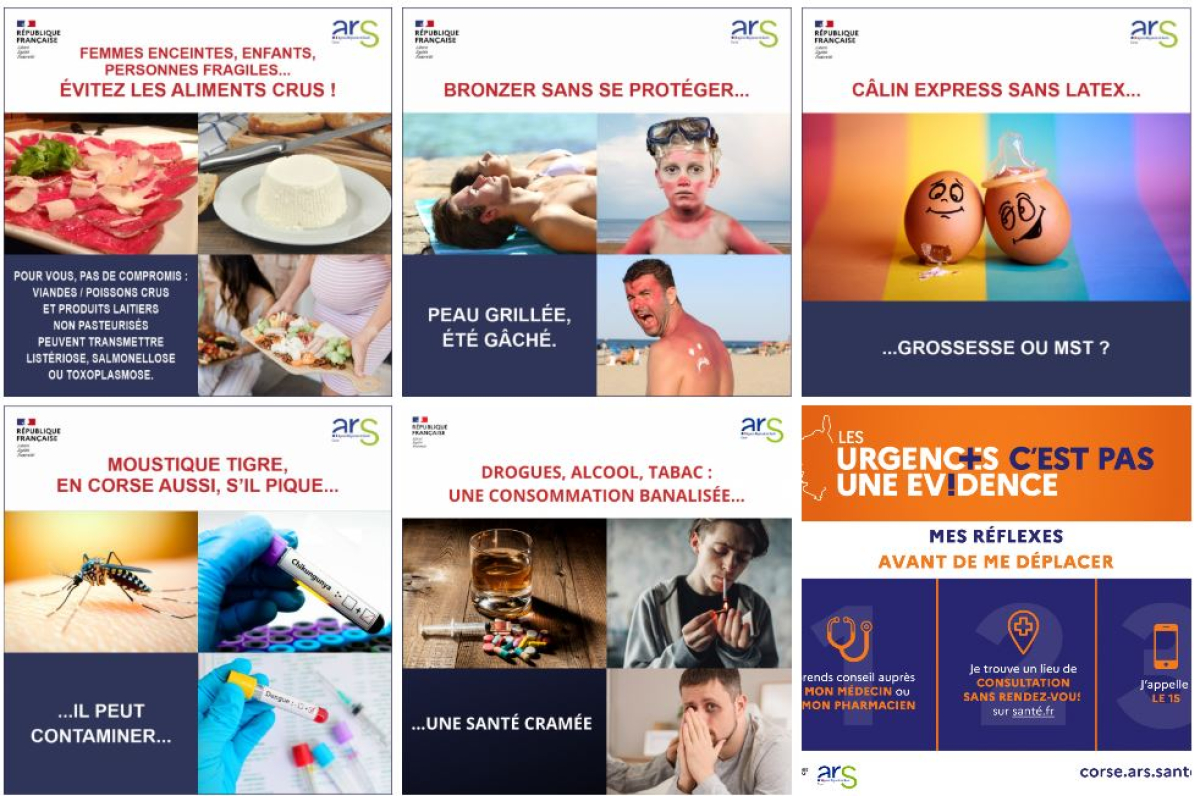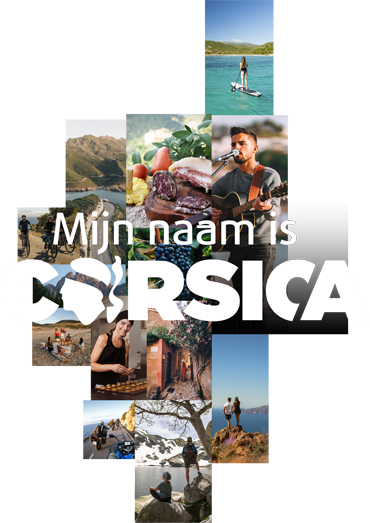Rechercher...
Ontdek Corsica
Mijn verblijf in Corsica
ARS Corse: Tips for a worry-free summer

Food: vigilance for the most vulnerable
Salads, grilled meats, raw fish, fruit, ice cream... In summer, our meals take on a fresher feel. But beware of food poisoning! Some foods can contain bacteria that cause unpleasant and dangerous illnesses.
- Pregnant women, young children, and people with weakened immune systems should avoid raw meat and fish, as well as unpasteurized dairy products. These foods can transmit listeriosis, salmonellosis, and toxoplasmosis.
- For everyone: wash your hands before preparing food, handling food, and sitting down to eat, respect the cold chain, and pay attention to how meat is cooked. “Sausages, poultry, and ground meat must be cooked thoroughly, as pathogenic bacteria can survive if they are not cooked properly,” recommends ANSES, which sees an increase in foodborne infections every summer.
Sun: protection above all else
Sunburn is not harmless. It can cause burns, sunstroke, or, in the long term, skin cancer.Protect yourself with sunscreen, a hat, sunglasses, and clothing that covers your skin. Avoid exposure between noon and 4 p.m., especially for children.
Sexuality: not without protection
During the holidays, we relax, think less about protection and prevention, and let ourselves go... However, unprotected sex exposes you to the risk of unwanted pregnancy or sexually transmitted infections (STIs). Condoms remain the only effective means of protection against STIs.
Good to know: For those under 26, several brands of condoms are available without a prescription and free of charge at pharmacies upon presentation of your health insurance card. For those over 26, these same brands are reimbursed at 60% by health insurance upon prescription.
Tiger mosquito: watch out for bites
The tiger mosquito is now present throughout the country, including Corsica.
It can transmit chikungunya, dengue fever, and the Zika virus. The first indigenous cases (i.e., infected in Corsica without having traveled there previously) were detected in June in southern Corsica. To protect yourself:
- Eliminate standing water (saucers, buckets, gutters),
- Use repellents and wear long clothing in high-risk areas.
Find out more: Mosquitoes: harmful species | Corsica Regional Health Agency
Contagious diseases: hide symptoms
Fever, cough, red spots? Before going to a doctor's office or pharmacy, wear a mask and follow social distancing guidelines.In the event of measles, COVID, or other viral illnesses, this will help protect others and limit the spread of infection.
Tips and tricks for coping better with the heat
Heat waves that are increasingly frequent, early, intense, and long can have significant effects on everyone's health, especially vulnerable people such as the elderly, isolated individuals, people with disabilities, those in precarious situations, but also patients with chronic conditions, pregnant women, young children, and outdoor workers.
In order to limit the impact on our health, it is important to be prepared for these episodes. The website Vivre avec la chaleur.fr is full of practical advice on how to live better in the heat (how to adapt your home to the heat, when to exercise, etc.).
At the same time, if a heatwave or extreme heat occurs, it is important to strictly follow preventive measures:
- Drink water regularly without waiting until you feel thirsty.
- Cool down and wet your body (at least your face and forearms) several times a day.
- Eat fresh, balanced meals and avoid alcohol;
- Avoid going out during the hottest hours of the day and spend several hours a day in a cool place (cinema, library, supermarket, etc.);
- Avoid physical exertion;
- Keep your home cool (close windows and shutters during the day, open them in the evening and at night if it is cooler);
- Remember to check in on your loved ones regularly, especially those who are most vulnerable, and don't hesitate to ask for help if necessary.
Drugs, alcohol, tobacco: beware of trivialization
Among young people and adults alike, smoking, drinking alcohol, and using drugs may seem harmless, fun, or even part of everyday life. However, these substances have direct effects on physical and mental health, including mood disorders, sleep disorders, chronic diseases, and addiction.
Even occasional use can have lasting effects.The right thing to do is to talk to a healthcare professional or a prevention center.If necessary, helplines are available, such as Drogues info service: 0 800 23 13 13 (anonymous and free) or alcool info service 0980 980 930 (anonymous and no surcharge).
Need help
Stomach ache, fever, headache, a child in pain... there are many situations that require unforeseen medical attention and for which you want to see a doctor quickly. Unless it is a life-threatening emergency, do not go to the emergency room, but follow this procedure:
- First, call your primary care physician.
- Consult the map of unscheduled medical care facilities.
- Call 15
If you cannot find a solution, dial 15. A doctor will provide you with a response tailored to your needs:
- referral to a general practitioner or an on-call medical center,
- immediate referral to the SAMU (emergency medical service) if necessary.
Find this advice and much more on the ARS Corse website: The right steps to take for a worry-free summer | Agence régionale de santé Corse (Corse Regional Health Agency)
Locate
powered by cd-media.fr



